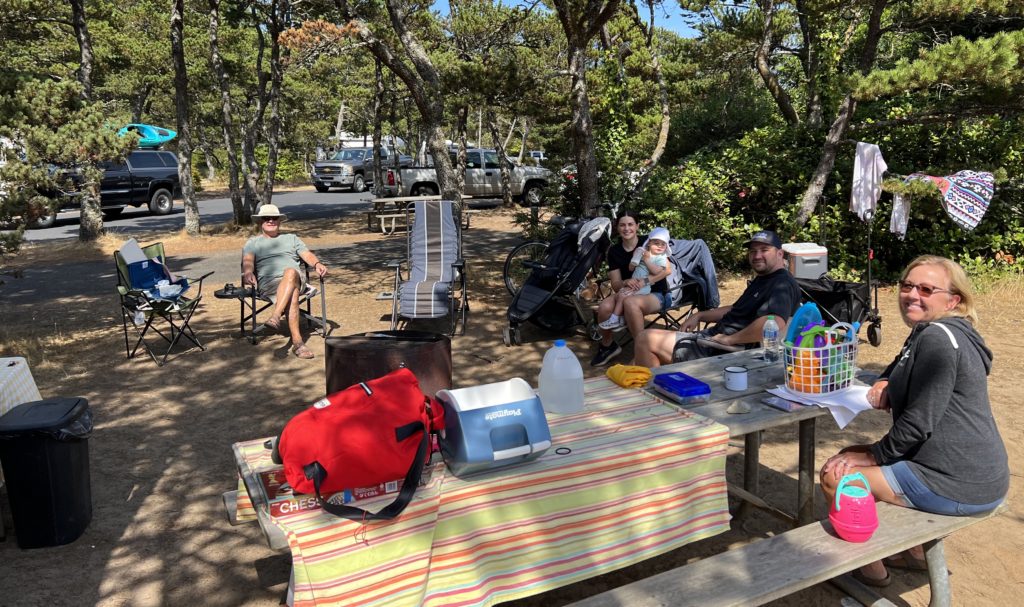
By DANA TIMS/YachatsNews.com
Heading into the third summer of lingering global pandemic, Anthony Muirhead was not sure what to expect of a tourist season regarded as make-it-or-break-it for leisure and hospitality businesses on the Oregon coast.
The summer of 2020, after all, proved ruinous to many restaurants, hotels and galleries, who barely scraped by, if at all, after struggling through months of Covid-related business shutdowns. Then, last summer as flight-wary travelers eschewed longer trips in favor of coastal outings, revenues soared as business owners struggled to find enough employees to fill regular schedules.
Now, with summer winding down, Muirhead, who manages the 110-bed Adobe Resort in Yachats, said this year will go down as a season as close to normal as anyone could expect.
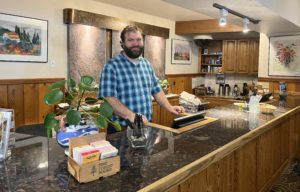
“We are still facing a lot of challenges and we’re all pretty tired,” he said. “But any concerns about a big slowdown this summer seem to have been unfounded.”
Occupancy in July hit 100 percent, Muirhead said. And, unlike the past two years, he wasn’t forced to shut down any rooms due to lack of staffing to maintain them.
“Our restaurant is still on life support because the five to six servers we used to have is now down to just two,” he said. “But we have had a really good summer season and are looking to even better things ahead.”
For leisure and hospitality businesses on the Oregon coast, summers are every bit as important as the Christmas sales season for other retailers. At the coast, if business slumps between June and mid-September, a long, dreary winter likely lies ahead.
In the view of many business owners, however, this year’s surprisingly solid summer season provides room for optimism.
At Luna Sea Fish House in Yachats, owner Robert Anthony was initially worried that high gas prices might cut into the number of visitors to his popular eatery. Slow sales at the beginning of June only underscored his concern.
“But things really picked up in August,” said Anthony, who in May 2021 opened another, similarly named restaurant just north in Seal Rock. “Peoples’ willingness to travel translated directly into a fantastic year for us.”
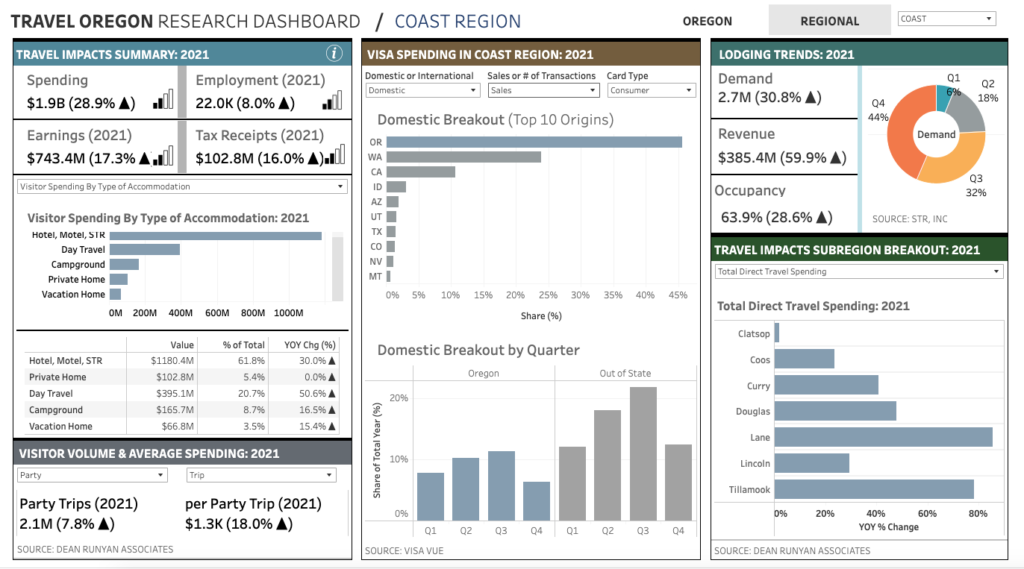
Covid concerns
As with virtually every other restaurant and hotel along the coast, Covid continues to represent significant challenges for both operators and employees. A positive test means workers who are hard to find anyway are automatically out for at least five days or longer.
“For us, this has been a worse year for Covid as far as having staff out,” Anthony said. “That also means customers have to wait longer than they might expect for food service. But most people are pretty understanding and our staff, even short at times, has really pitched in to make things as smooth as possible.”
At Ona Restaurant in Yachats, owner Michelle Korgan said she also struggled this summer to find enough staff. A restaurant revitalization grant she received helped substantially, she said, because she was able to use some of those funds to help pay sick-time wages for employees down with the virus.
One notable downside of staff shortages began surfacing just last month, Korgan said, when she noticed an uptick in rude behavior from some diners.
“Most of our guests have been great,” she said. “But more than just a few have had absolutely no patience. It’s not all the time by any means, but when it happens, it’s striking to see people actually behave that way.”
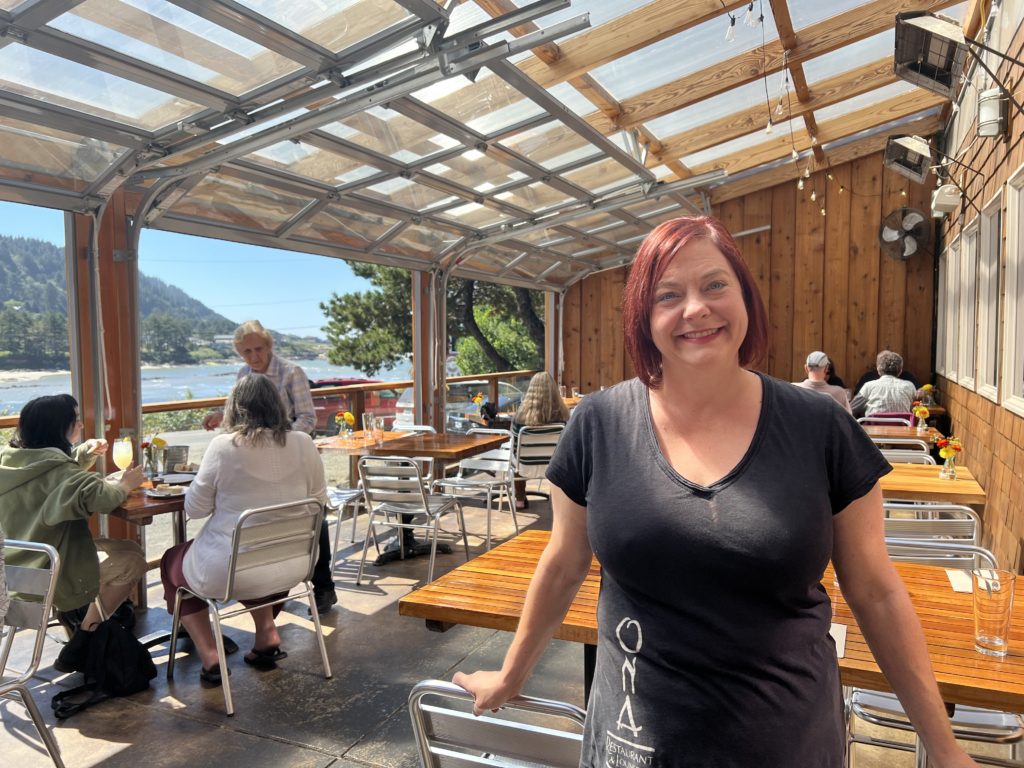
New waves of visitors
The occasional temper tantrum aside, the total number of tourists hitting the beaches and shops this summer exceeded pre-pandemic levels.
“July 4, for some reason, was a bit softer than usual,” said Josh Conrad, general manager of the Best Western Agate Beach in Newport. “But a lot of us are doing better than we were in 2019. And this is probably the first summer since the pandemic when both tourists and our staff really wanted to be here.”
A reopened U.S.-Canada border has Canadians flocking to the coast for the first time in a year, he said, while the so-called “gray wave” of senior travelers is also back in force.
The lunch service that Conrad had to dispense with during the pandemic – due to lack of both staff and tourists – is still gone, and he is fine with that, saying, “The reality is that you should be out on the beach or on a boat somewhere on the bayfront in the middle of the day anyway.”
In place of a daily lunch, he has added a Sunday brunch, which has had the effect or luring local patrons during a time slot when hotel guests are checking out and heading home.
“That lull is the perfect time for locals to come out and enjoy a couple of hours with us,” he said. “It’s actually worked out very nicely.”
The number of travelers stopping for information and inspecting the Alsea Bay Bridge Interpretive Center in Waldport has so far exceeded the red-hot figures reported in 2021.
“We have been very busy,” said Thomas Fullmer, director of the Waldport Chamber of Commerce. “We’ve had visitors from almost every state and from a number of other countries, as well.”
Even though the center is open only five days a week, Fullmer said he expected nearly 3,000 people to stop at the center in August alone.
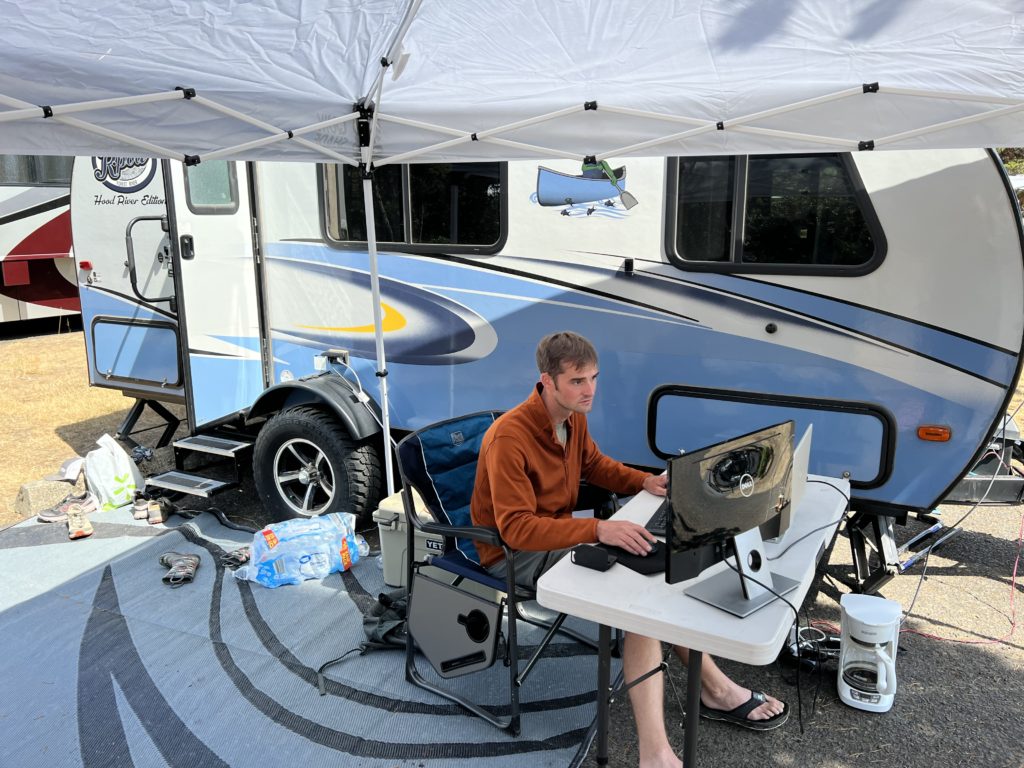
Camping out
Area campgrounds have also been bustling, but not with quite the numbers registered last summer, said Dylan Anderson, central coast parks manager for Oregon State Parks and Recreation.
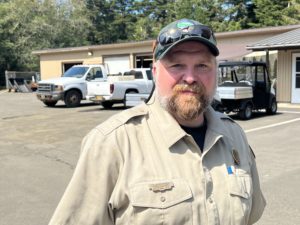
“I’m glad to say it’s been a very typical summer season for us,” he said. “In so many ways, things are just feeling a lot more normal this year.”
One significant challenge – one faced by nearly every large employer along the coast – has been trying to find suitable housing options for seasonal staff. Soaring rents have priced many employees out of the market, while some municipal bans on renting vacation homes to tourists has further limited options.
Of the 15 seasonal workers state parks added to Anderson’s staff this year, in fact, about half are commuting each day from Corvallis.
The agency currently is exploring the idea of building so-called tiny houses or yurts in portions of some state campgrounds that are under-used.
“We could potentially use those in summer months for seasonal housing and in winter when those types of facilities are really popular with travelers,” Anderson said. “Moving ahead, that could really help solve this shortage.”
Time to rock and roll
Barbara and Tony Shepherd, who own Sea Perch RV Resort in the Tenmile area between Yachats and Florence, are booked to capacity through September.
In terms of overall earnings, Barbara said, this year is running “neck and neck” with 2021.
“Everything’s been wonderful here this summer,” she added. “We’re only sorry it’s going to end.”
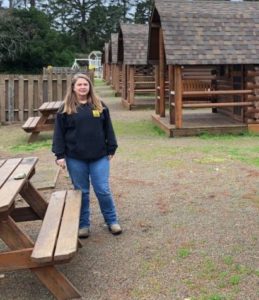
At the Waldport/Newport KOA, co-owner Amanda Remund wasn’t sure what to expect as the summer season kicked off. After all, the facility, which she owns with her husband, Ron, had been fully booked each of the last two years.
“I’d say this year has been a lot more like what we used to consider ‘normal’ years,” she said. “Maybe we haven’t been quite as busy, but it’s still nice to see people from just about everywhere coming to stay with us.”
Back at The Adobe, Muirhead said he and other coastal leisure and hospitality businesses plan to learn from the lessons and challenges imposed by the pandemic and put them to use moving ahead.
“We’ve been rocked,” he said. “And now we’re rolling.”
- Dana Tims is an Oregon freelance writer who contributes regularly to YachatsNews.com. He can be reached at DanaTims24@gmail.com



